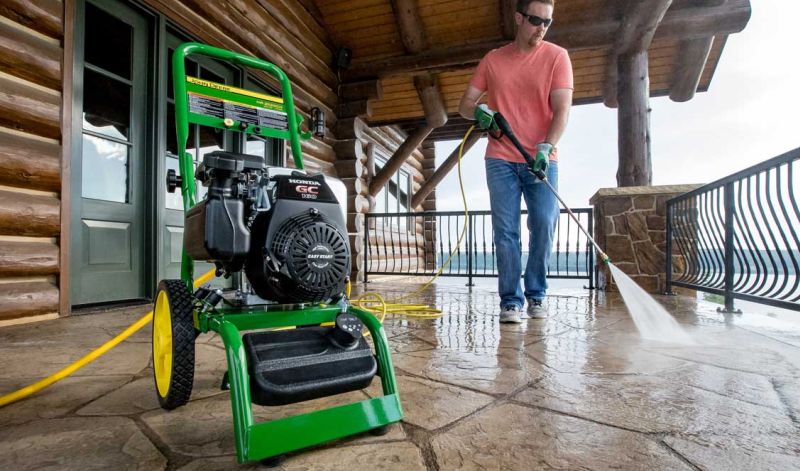Pressure washers are powerful cleaning machines. You can use them on a wide variety of cleaning projects. You can blast away oil spills, dirt, grime, and other debris from your surface quickly and efficiently.
If you’re in the market for one, you’re most likely thinking of which type is suitable for your needs. Gas or electric-powered washer? While some homeowners swear by their electric pressure washer, some feel that a gas pressure washer has it all.
So which one is right for you and your home? While both can pretty much make your life easier, their functionality and aesthetics are different. There’s a massive difference in their price tags as well.
1. Build and Design
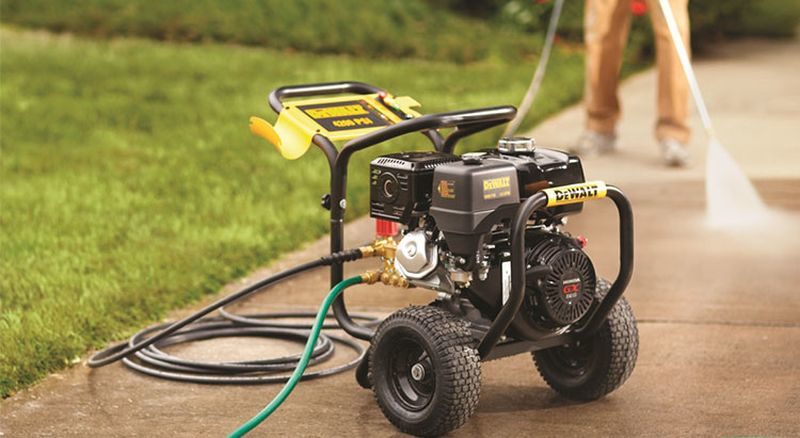 The difference in the physical build and design quality between electric and gas pressure washers are clear from the get-go.
The difference in the physical build and design quality between electric and gas pressure washers are clear from the get-go.
Homeowners often give the build quality of electric-powered washers negative feedback. But don’t let this discourage you since it doesn’t mean that these machines are not great products.
However, some consumers are expecting their quality to be on par with their gas counterpart. Some of their components are not reinforced with steel like with most gas models. Nevertheless, they may fall short in build quality, they make up for in their convenient design and price tag.
Gas-powered washers are typically attached on a sturdy chassis with heavy-duty tires. That’s why they are heavy and large machines that you can’t easily carry by hand. You need to push them around like carts.
You can’t avoid their bulky design since they are incorporated with professional-grade parts. But that doesn’t mean they’re more difficult to operate than the electric models.
2. Practicality
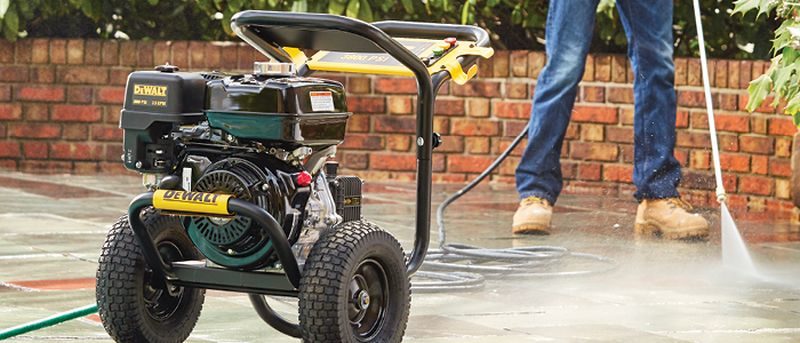 These units like the Karcher K5 Premium (2000 PSI, 1.4 GPM) are quite practical. They’re often lightweight and with collapsible designs. It means that you can fold them down for easy storage and transport in your small van or car. Additionally, they don’t need regular maintenance.
These units like the Karcher K5 Premium (2000 PSI, 1.4 GPM) are quite practical. They’re often lightweight and with collapsible designs. It means that you can fold them down for easy storage and transport in your small van or car. Additionally, they don’t need regular maintenance.
Gasoline pressure washers require winterizing since you can’t store them indoors. You also need to store them upright to avoid oil leakage, which can potentially damage the equipment. And these models require constant upkeep, wherein you need to refill its oil and fuel regularly.
3. Cleaning Power
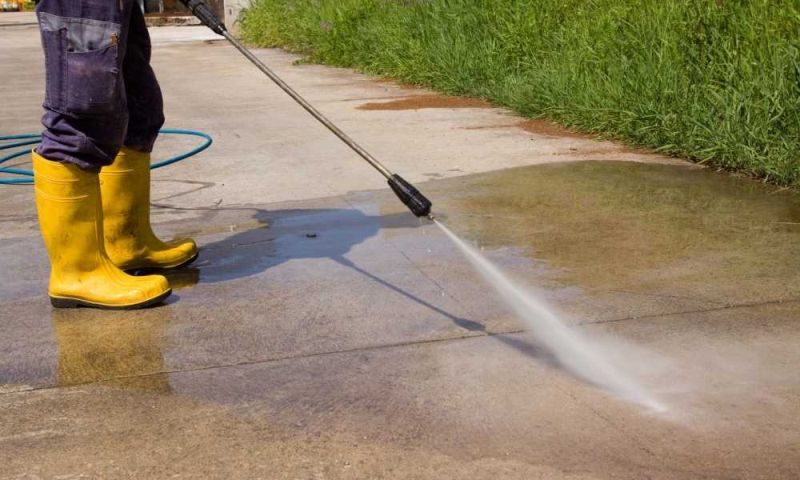 When looking for the right pressure washer for your home, you need to consider the following cleaning power figures:
When looking for the right pressure washer for your home, you need to consider the following cleaning power figures:
- GPM or Gallons Per Minute which is the rate of water flor output by the machine per minute.
- PSI or Pounds Per Square Inch which refers to its water jet’s power and pressure.
- CU or Cleaning Units, the rating when GPM and PSI are multiplied and the measure of the cleaning efficiency of your device. If your power washer has a higher CU, the quicker it can finish the job.
The average PSI of electric models usually ranges between 1,300 to 1,700 PSI. But there are brands that are sometimes higher. Their GPM is somewhere around 1.4 to 1.5 GPM, which means their CU rating often falls between 5,000 to 10,000 CPU.
You don’t need to go higher than these figures for your typical home cleaning jobs. However, if you’ll use a pressure washer for big and tougher commercial pressure washing, these units may start to struggle. So, you may need to opt for gas-powered.
Gas units have more power than their electric counterpart, but as they say, not everything is created equally. Nevertheless, these cleaning tools come with a higher PSI, typically about 2,000 to 4,000 PSI, and 2.5 to 4 GPM.
A good example is Champion #100384 (3200 PSI, 2.4 GPM) which offers a higher cleaning efficiency expected from a commercial, professional-grade pressure washer.
4. Weight and Size
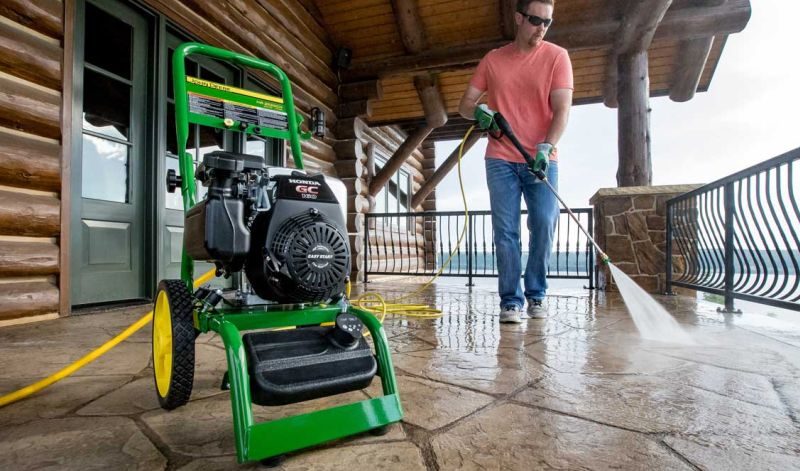 These factors are vital when you’re looking for the perfect power washer. You have to take into consideration your storage options and the size of the surface you’ll often clean.
These factors are vital when you’re looking for the perfect power washer. You have to take into consideration your storage options and the size of the surface you’ll often clean.
Loads of electric power washers are far less than that of gas units since their design is engine-based. As a result, they’re easy to move around when you’re navigating cleaning jobs such as fences and vehicles. You usually carry the machine with one hand, while the other hand is operating its wand.
On the other hand, since gas power washers are on the heavy-side, you need to push them around. So make sure that the wheels of the unit you’ll buy can easily glide on most surfaces.
5. Features to Consider
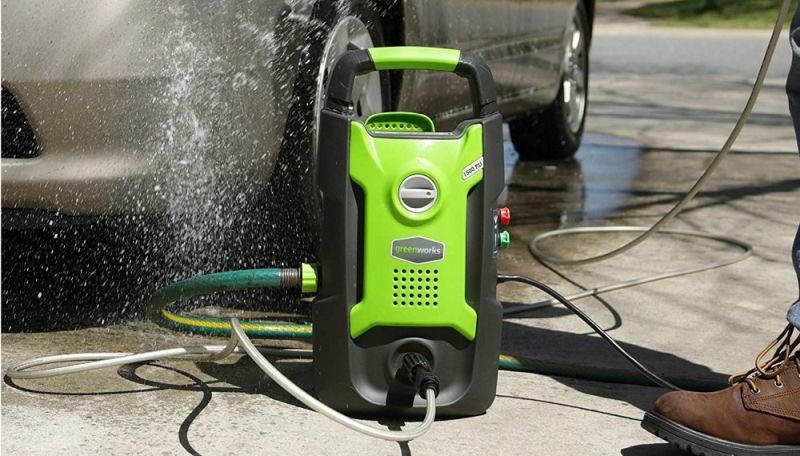
- Soap tank can save you the trouble of using a separate container.
- Cord and tool storage is a handy feature as well as wheels for gas units.
- Adjustable nozzles are far more convenient than those replaceable ones when cleaning. You simply twist it and the pressure or spray width changes. However, replaceable nozzles provide a broader option with their particular spray angles.
Which Pressure Washer Is the Right One for Me?
Most homeowners prefer electric pressure washers over gas pressure washers. Their upkeep is easier and less costly as well. You’ll rarely replace their major components and you don’t have to buy additional gas or oil.
People who own gas-powered units usually use them randomly. They take them out probably once or twice a year when heavy cleaning around their home is required. On the other hand, the electric model is what you’ll use every couple of weeks or so since they’re easy to handle.
Base your decision on how you will use the machine. So if you need a cleaning tool that you can conveniently use for small jobs such as keeping your outdoor space sparkling clean, choose an electric pressure washer. Opt for gas if you’ll mainly do larger jobs that need plenty of power. Also knowing the differences between the two and how to use them will best narrow down your choice.
Article Submitted By Community Writer


